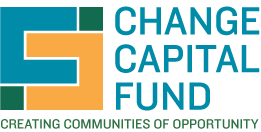Change Capital Fund’s grantees are among first New York nonprofits to gain access to government jobs data for outcomes tracking purposes
 |
Legislation enacted in 2013 amended the New York State labor laws to make it possible for the Department of Labor (DOL) to share unemployment insurance (UI) data for certain purposes, including: evaluating program effectiveness, improving the quality or delivery of services, and establishing common case management systems among federal, state or local agencies delivering or supporting workforce services.
|
|
CCF evaluation finds service coordination improves outcomes
MDRC’s third CCF evaluation brief, Delivering Coordinated Community-Based Services by Putting Networks Into Action, describes how CCF grantees’ service coordination efforts have helped to place individuals without extensive work histories in higher-wage jobs, to encourage first-generation college students to enter school and stay enrolled, and to get academically struggling students back on track, among other outcomes. [space_20] Besides drawing on interviews with the grantees – St. Nicks Alliance, the Fifth Avenue Committee, New Settlement Apartments, and Cypress Hill Local Development Corporation – and quantitative data on outcomes from the grantees’ reports to the funders, this brief uses an analytic tool called social network analysis whose basic unit is the relation between services, rather than an individual or organization. [space_20] As illustrated in the brief, grantees have started to develop internal and external connections to deliver multipronged services to populations identified as being in particular need of them. For example, as in the case of Stronger Together’s partners – the Fifth Avenue Committee (FAC), Red Hook Initiative (RHI), Brooklyn Workforce Innovations (BWI), and Southwest Brooklyn Industrial Development Corporation (SBIDC) – they have created pathways for public housing residents to receive adult education services, benefits advocacy, and the preparation necessary for higher-skills training programs and employment. [space_20]
Read the brief here.
|
|
|
CCF News
CCF donor representative Wendy Fleischer appeared on a podcast to talk about the initiative. Listen to it here.
|
|
|
CCF Donor NewsDeutsche Bank supported the Low Income Investment Fund (LIIF) in creating a bridge loan program for early childhood education providers participating in NYC’s universal pre-K initiative. LIIF has just released a white paper “Building Pre-K: Philanthropy & CDFI Collaborations in Financing Early Education Facilities,” which was funded by Deutsche Bank, and grows out of the Deutsche Bank UPK Bridge Loan Fund program. A short blog on the topic can be found here. A link to the full report is here.
[space_20] At their New York Gala, Enterprise debuted a video celebrating Bill Frey, this year’s honoree and founder of the New York office. Enterprise raised funds to support a new Enterprise Frey Associate, helping to develop a new generation of community development leaders.
[space_20]
Citi Community Development, in collaboration with FPWA, the NYC Department of Small Business Services and the NYC Department of Consumer Affairs convened a full-day forum where more than 60 leaders from City government, business and nonprofit sectors came together to discuss a roadmap for worker cooperatives and brainstorm best practices for this small business sector. In addition, Citi Community Development and the NYC Department of Consumer Affairs Office of Financial Empowerment released Leveraging Financial Empowerment to Support Employee-Owned businesses.
|

